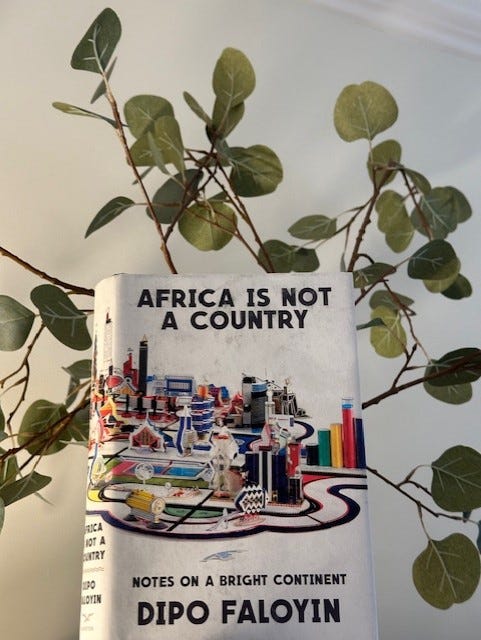Review of AFRICA IS NOT A COUNTRY
A provocative book that tells a sadly unfamiliar story that we refuse to listen to.
There is clarity in truth. The modern (post 18th century) history of the African continent has never been told to the Western world in such a way that it punches through the romantic safari and brutal dictator stereotypes thus resetting this vast continent in the Western mind. The stereotypes are as stubborn as the guilt of the West is vast. The latter supports the former and each AID FOR (fill-in the blank) concert, each righteous Hollywood treatment of African exploitations and brutality and each “Out of Africa” sunset on the savannah are all, mostly with the best intentions, efforts at not seeing Africa as a mosaic of worlds with deep histories, profound differences, home grown problems, and unique solutions … that is, a continental history with empires, spectacular cities, and its own vibrant mix of cultures. It was not Eden … nowhere is. But when the Europeans gathered in Berlin in 1884 and carved Africa up like a holiday turkey, using a map spread out on a conference table, they established boundaries that still exist today. Nobody at the table knew anything about Africa. The straight lines cut through a two-thousand-year-old tapestry as rich and diverse as Europe itself. It was the most brutal game of Monopoly ever played. Thousands of years African history, already under siege, disappeared. Its post-colonial reemergence, strangled within artificial boundaries, and the headline grabbing dysfunction that arose with it and the reawakening of pillaged cultures and displaced peoples are all part of Dipo’s extraordinary, very didactic, colorful, and often hilarious slap in the collective face of the West. Parts of the book drag (skim). Parts of the book are redundant (skim). He has a hard time landing the ending. It needed a few rounds with a no-nonsense editor. Regardless … it is a “daring” book. Most particularly, “I dare you to read it.”
Africa Is Not a Country
Notes on a Bright Continent
Dipo Faloyin
2022 400 page
s


